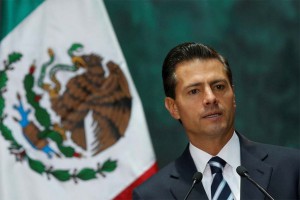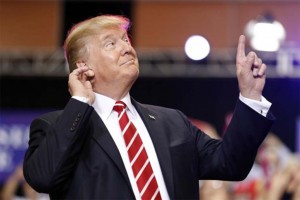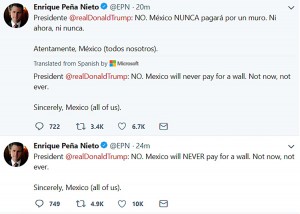The Trump administration moved to raise tariffs to 25% on steel and aluminum from Mexico, Canada and the European Union, all of which promptly moved to retaliate against the U.S. raising the prospects of a trade war.
The Toronto Globe and Mail reported that the Canadian government had already prepared a list of goods on which it would be raising tariffs and the Mexican government also announced tariffs on American-made products.
The European Union is expected to retaliate by imposing stiff new tariffs on American-made products, such as bourbon and Harley-Davidson motorcycles. Harley is now struggling and is the process of closing a plant in Kansas City, Missouri. It could be shutting down more plant capacity in the U.S if sales continue to decline.
EU officials have been asking for an exemption from the Trump tariffs but pleas from the leaders Angela Merkel of Germany and Emanuel Macron of France didn’t slow the push for tariffs by the Trump administration.
(Trump wants to drive German luxury cars out of the U.S. Click Here for the story.)

Mexican President Enrique Pena Nieto tweeted to President Donald Trump that there is no chance Mexico is paying for the wall.
The tariffs, which originally were announced by the administration back in March, were delayed but the cooling off period is over at the end of the week and several accounts indicate the administration is willing to move ahead with new levies, which will mark a significant escalation of global tension over trade.
The administration also has vowed to enforce the tariff if Mexico’s efforts to renegotiate the North American Free Trade Agreement. The NAFTA talks appear unlikely to succeed, which could create new friction on the trade issue and created enormous uncertainty in key sectors of the American economy such as autos and agriculture.
During a campaign rally in Tennessee, Trump also repeated the claim that Mexico will ultimately pay for the wall.
(Click Here to see more about the UAW’s support of Trump’s tariff plan.)
Mexican President Enrique Peña Nieto on Tuesday fired back at President Trump for renewing a claim that Mexico would pay for Trump’s proposed border wall “in the end.”
“NO. Mexico will NEVER pay for a wall. Not now, not ever,” Peña Nieto wrote on Twitter. “Sincerely, Mexico (all of us).”
Nevertheless, Trump appears to believe trade is an issue on which he benefits politically, despite strong opposition from within his own Republican Party and from Wall Street, which has handed Trump millions of dollars in political contributions. However, the investment community is also become increasingly worried about the potentially destructive impact of Trump’s trade war threats.
(To see more about China cutting tariffs on U.S. imports, Click Here.)
In addition, the administration also appears divided on trade issues, particularly in the case of China on which it imposed tariffs despite saying early this month it had worked out a framework for deal with China on trade.


